One Small Step, One Giant Leap: Is Your Child ‘Ready’ for Primary School?
30 November 2023
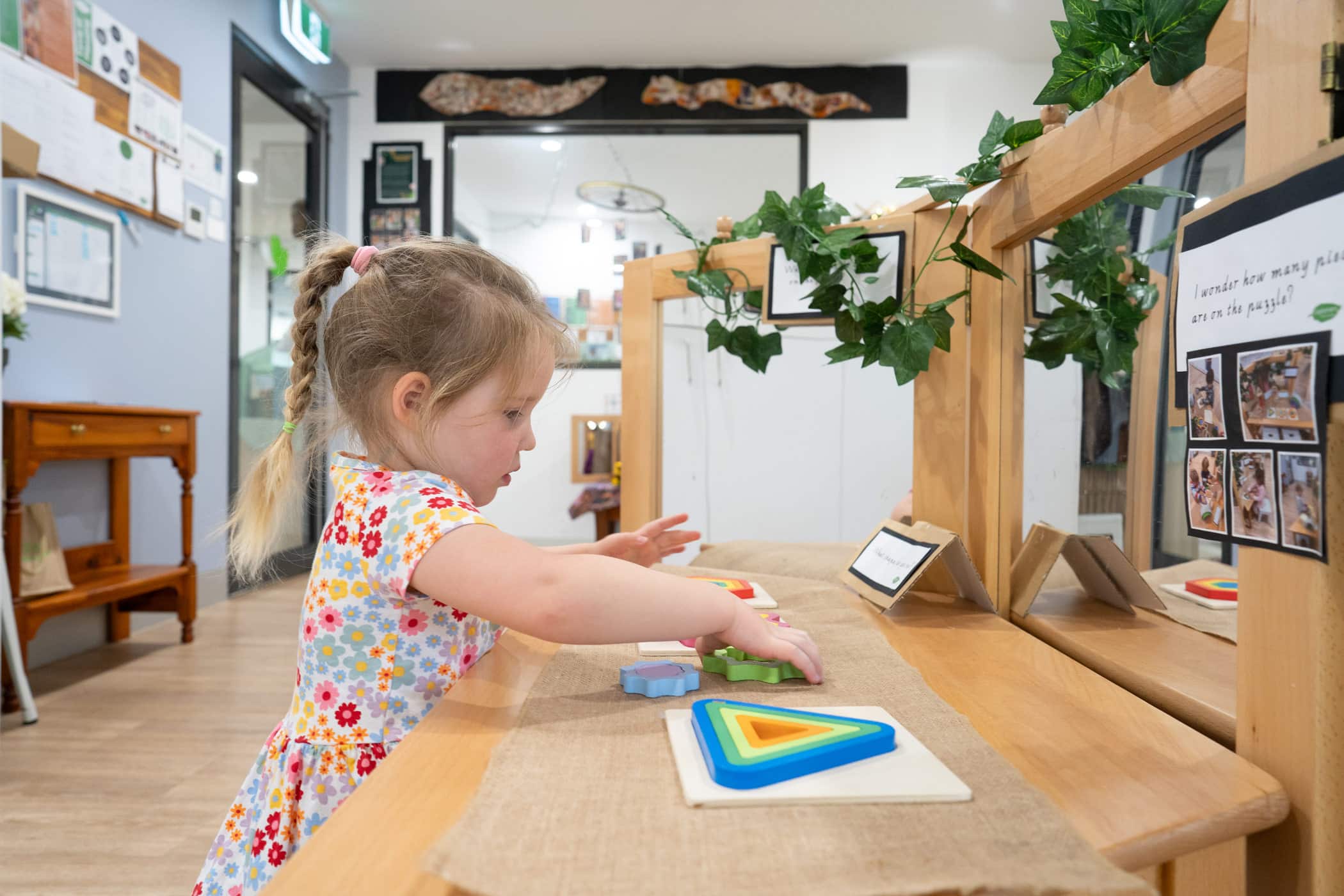
Reading, writing, and sitting still. That’s all there is to prep, right? Well, not exactly. Read on for our full breakdown of all the essential skills your child needs to thrive in prep and beyond 👇
The transition between early childhood education and primary school is an exciting and sometimes challenging time for parents and children alike. It marks the next step in your child’s educational journey, and their first foray into the formal schooling system.
But with all the talk of ‘school readiness’ and the Victorian Government’s upcoming ‘Pre-Prep’ program, how can you really know if your child is mentally and emotionally prepared for the big first day?
In this post, we break down the key developmental areas to keep an eye on in the days, weeks, and months before the first day of prep!
What Age Do Children Start Prep in Victoria?
In Victoria, children need to turn 5 years of age by 30 April of the year that they start school. Alternatively, children must be at school in the year that they turn 6 years of age – this is the compulsory school starting age.
Additionally, parents have several options for schooling depending on location, fees, religious preferences, and educational philosophy:
- Government schools
- Private schools
- Language schools
- Specialist schools
- Distance education
- Home schooling
More than Reading and Writing
Once your child is enrolled, it’s important to remember that the essentials for primary school extend far beyond reading, writing, and sitting still. Rather, children grow and develop in a number of key growth areas, such as independence, emotional maturity, and sociability.
Therefore, try a holistic approach to gauging your child’s ‘readiness’ for primary school. Every child is unique with individual skills, passions, and ways of learning. In other words, no two children are exactly alike.
So, get a feel for your child’s development in the following areas, and be sure to discuss these with your Kinder teacher leading up to the first day.
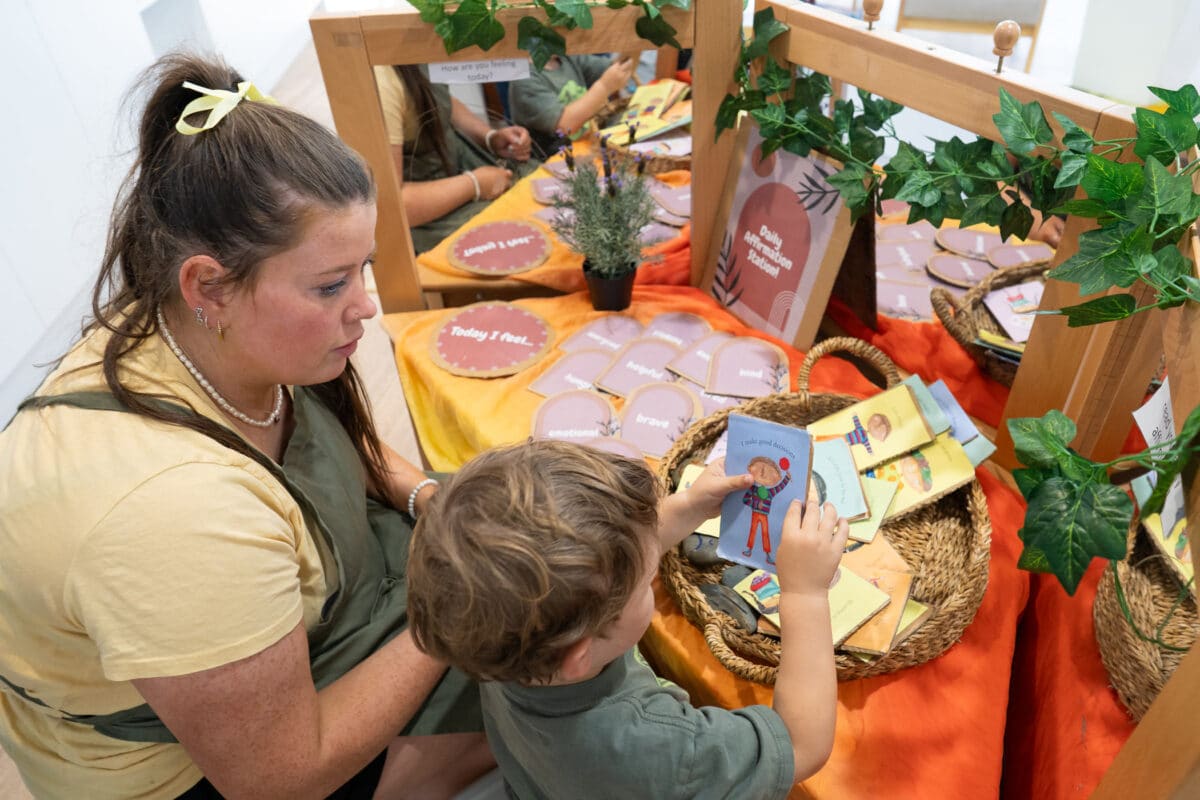
Social Skills and Independence
Is your child getting along with other children? Do they stand up for themselves or others? Sociability is a vital skill for children entering primary school, and one that experts suggest is improved with quality early childhood education. Social skills form the foundation of conversation, compromise, and relationship bonding.
Without established social skills, children may struggle to adapt to the primary school environment where children grow physically and psychologically with their peers. Some signs your child is displaying social skills leading into primary school include:
- Sharing toys
- Organising games and making friends on their own
- Role-playing as adults through games like ‘mummies and daddies’, ‘superman’, or ‘cooking’ in a dramatic play area
- Asserting themselves (even being a bit bossy!)
- Going to the toilet on their own (including using toilet paper properly and flushing the toilet)
Emotional Maturity
Can your child regulate their emotions with minimal adult intervention? Essentially, emotional maturity highlights a child’s ability to empathise and identify emotions in others, while also expressing their own in healthy ways – this doesn’t mean bottling everything up!
According to the Australian Early Development Consensus, children’s ‘ability to understand their emotions helps children to empathise with others.’ Therefore, children who display emotional maturity ‘can infer the feelings of others and respond in prosocial ways that demonstrate that they care for other people and value relationships.’
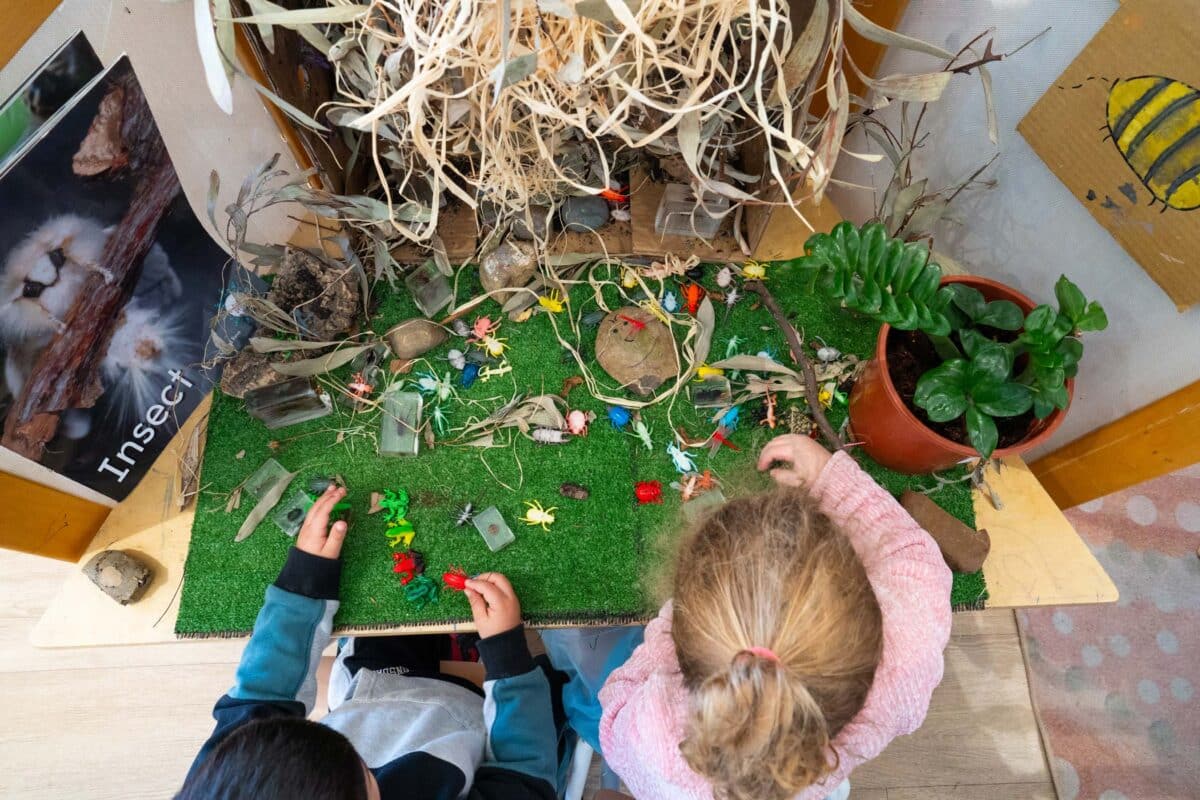
Language Skills
Language skills are so much more than a child’s ability to speak and enunciate their vowels. Rather, a vital component of language skills is children’s ability to listen and collaborate with others. These interpersonal skills equip children with the tools to:
- Express and understand complex emotions
- Think and learn for themselves
- Problem solve
- Develop and maintain long-lasting relationships
Cognitive Skills
Reading and writing are just two of the many cognitive skills expected in primary school. Cognitive skills strengthen children’s ability to absorb and critically analyse information, so it’s more than just remembering that two plus two equals four.
Rather, cognitive skills allow children to:
- Focus on mentally strenuous tasks
- Analyse information
- Compare and evaluate
- Problem solve
- Grasp cause and effect
However, it’s important to keep in mind that not all children learn at the same rate or in similar ways. Some children thrive with mathematical concepts, while others learn from artistic or abstract activities. Be sure to speak with your child’s Kinder teacher if you have any concerns.
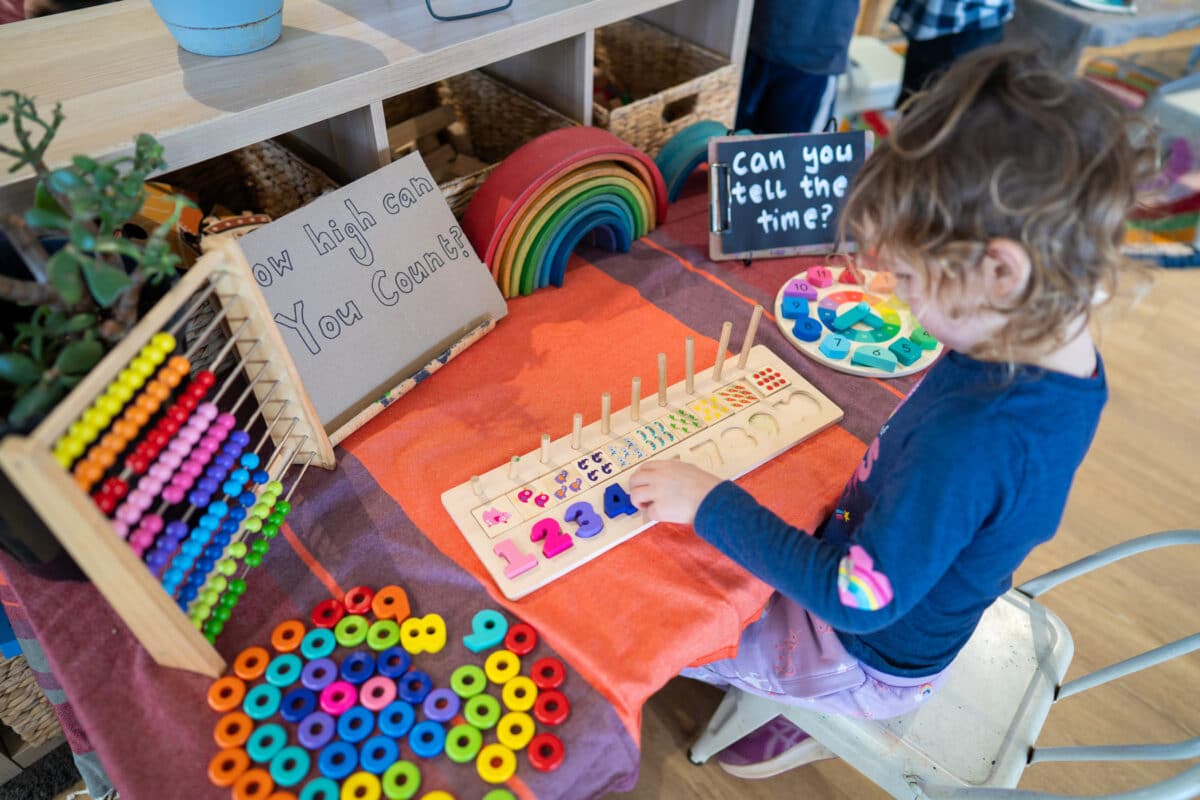
Fine and Gross Motor Skills
The ability to touch, feel, and manipulate objects is one of the most important skills for children. It’s an extension of their independence in a tangible, physical way. Therefore, children’s fine and gross motor skills are vital for success in academic and social development.
According to the Early Years Learning Framework, ‘Physical activity and attention to fine and gross motor skills provide children with the foundations for their growing independence and satisfaction in being able to do things for themselves.’
In other words, children need to interact with the world around them, whether that be through drawing, writing, moulding, solving puzzles, or playing with toys.
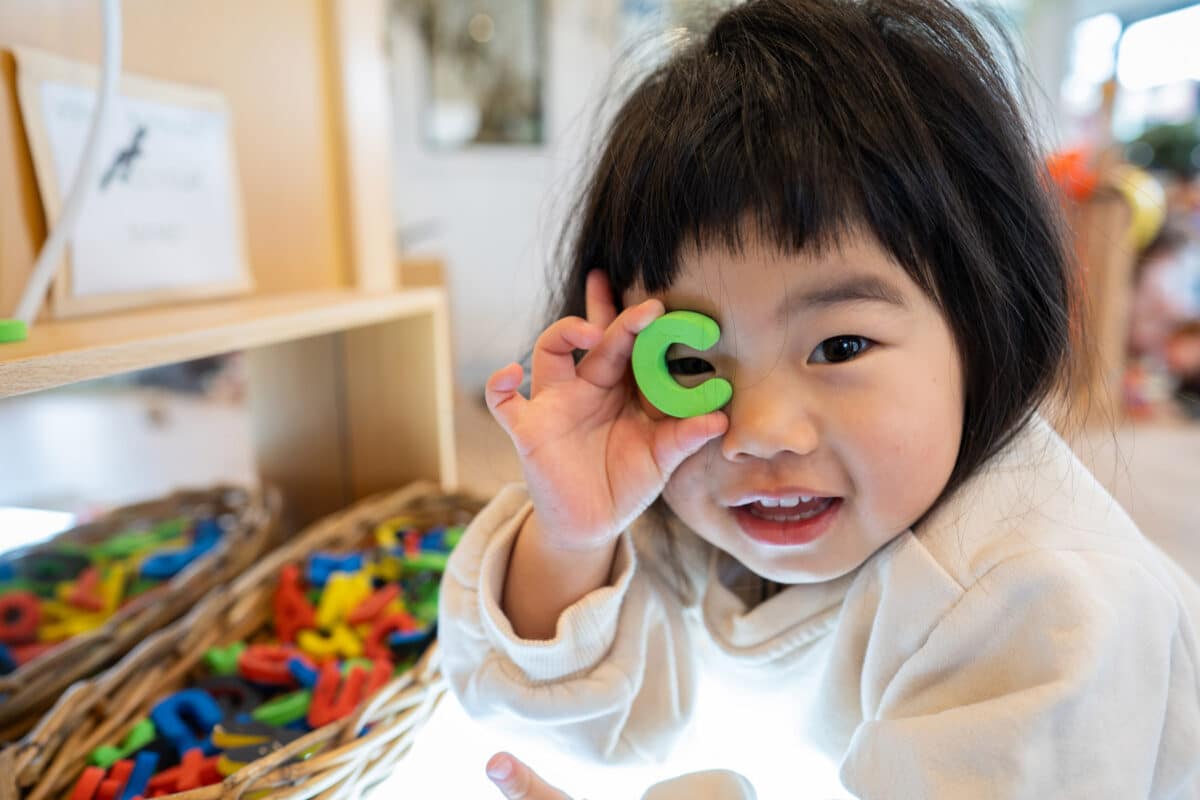
Ultimately, as your child embarks on the exciting transition from Kinder to primary school, it’s vital to consider readiness beyond academics. Social skills, emotional maturity, language proficiency, cognitive abilities, and motor skills all contribute to a well-rounded preparation that’ll ease those first day worries. Therefore, nurturing these aspects ensures a smoother transition and sets the stage for a fulfilling educational journey and a lifelong love of learning.
🍃 To tour one of our beautiful Centres, please click here. Otherwise, check out our website to register your interest at Explorers Early Learning today!